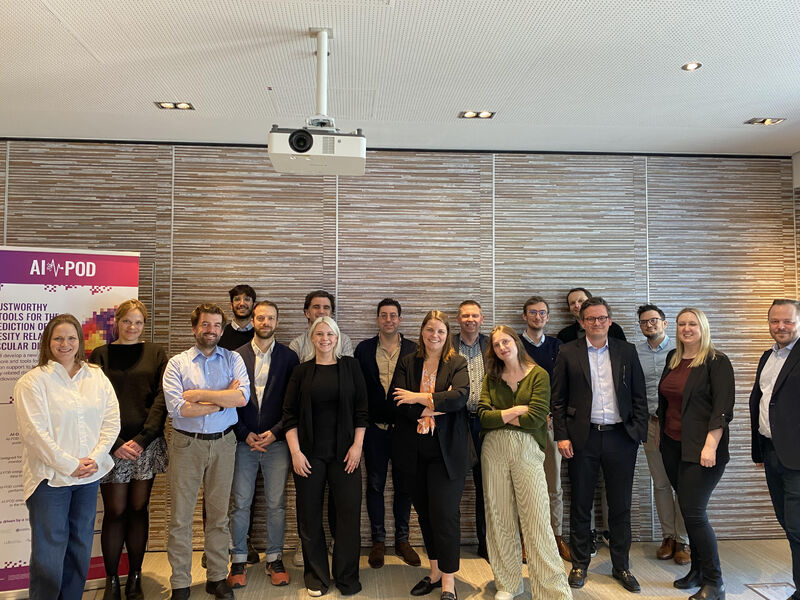The AI-POD consortium convened in Vienna for its third in-person meeting, bringing together partners from across Europe to review progress, share insights, and align on upcoming priorities. Hosted by the Medical University of Vienna, the meeting marked a significant moment of collaboration as the project continues to advance its goals in AI-supported cardiovascular risk prediction.
The session opened with a warm welcome from the project coordinator, followed by a summary of achievements to date. Among the highlights were progress in data collection and processing, the onboarding of clinical sites, and the early results from the patient inclusion phase. Participants also had the opportunity to reconnect in person, share experiences, and discuss key technical, clinical, and ethical aspects of the project.
Strong Progress Across Work Packages
A central focus of the meeting was the review of data acquisition and image processing activities, where updates were shared on the transfer and curation of retrospective datasets across multiple sites. Technical teams discussed recent developments in imaging protocols and data annotation workflows, which will support the training of AI models for clinical decision support.
Clinical partners also reviewed the progress of the proof-of-concept study. While patient recruitment and follow-up continue to face practical challenges, new strategies are being implemented to improve participation and reduce dropout rates. Insights were shared on how to better communicate the study’s value to patients, with particular attention given to creating more accessible, motivating materials.
Technology, Ethics, and User Engagement
Consortium members working on the cloud-based data platform presented new tools aimed at enhancing data accessibility and project coordination. Meanwhile, AI development teams discussed ongoing work to create explainable models that integrate clinical, imaging, and lifestyle data.
Ethical considerations remain central to the project’s mission. Discussions focused on the importance of transparency, inclusivity, and trust in the use of AI in healthcare. Updates were provided on surveys and interviews currently underway to gather input from healthcare professionals and patients, with a focus on understanding their expectations and concerns.
Work also continues on the development of a user-facing app, as well as tools for collecting feedback from patients and clinicians to inform system improvements. Efforts to strengthen public engagement and dissemination were highlighted, including plans for upcoming stakeholder and end-user workshops.
Looking Forward
The meeting concluded with a roundtable led by the work package leaders, outlining key actions and timelines for the coming months. Topics included the coordination of data annotation, next steps in AI model development, and strategies for patient engagement.
Partners reaffirmed their commitment to the project’s collaborative spirit and its shared goal of advancing innovative, ethical, and user-centred solutions in AI-driven medicine.
